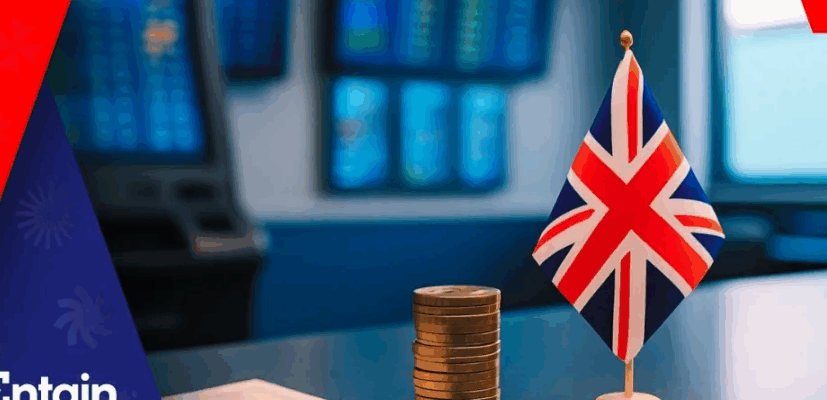
Higher Taxes, Higher Risks
FTSE 100-listed betting giant Entain—owner of Ladbrokes and Coral—has cautioned that proposed gambling tax increases in the UK could unintentionally benefit unlicensed operators. The company warned that harsher fiscal measures might reduce government revenues and weaken consumer protections, while fueling growth in the black market.
Chief Financial Officer Rob Wood pointed to the Netherlands as a cautionary tale:
“The Dutch experience shows that if you raise taxes too high and regulate too aggressively, the outcome is counterproductive. They’ve already admitted that more than half of their market has shifted to the black market.”
The warning comes as the UK Treasury considers tax reform, including merging the 15% general betting duty and 21% remote gaming duty, with some politicians pressing for an even steeper increase.
Black Market Expansion Threat
Wood argued that higher taxes would inevitably drive up costs for consumers, resulting in “worse odds, fewer promotions, and reduced generosity.” Such conditions could push players to offshore sites, which often promise better returns and fewer restrictions.
In the Netherlands, raising the gambling tax from 30.5% to 34.2% in January 2025 was expected to generate €200 million in extra annual revenue. Instead, legal revenues fell by a quarter, creating a €200 million shortfall. Analysts say the combination of tax hikes with stricter marketing and compliance rules makes it hard to isolate the tax effect, but multiple studies identify taxation as a leading factor in the decline of regulated market share.
Channelization at Risk
The concept of “channelization”—keeping players within the regulated, taxpaying system—is central to Entain’s concerns. According to a YouGov survey commissioned by the industry, 28% of UK gamblers said they would consider switching to unregulated sites if taxes rise, while nearly two-thirds expressed openness to black market alternatives.
Consumer advocates stress the dangers: black market operators offer no payout guarantees, no complaint resolution, and none of the player protection measures required of licensed platforms.
Racing Industry Alarm
The British Horseracing Authority (BHA) has launched its “Axe the Racing Tax” campaign, warning that a uniform 21% duty could cost the industry £66 million annually and threaten 2,752 jobs. Independent forecasts suggest that if the tax were raised as high as 40%, the hit could reach £160 million.
The debate has become a broader policy battle, pitting rural economies and racing livelihoods against fiscal objectives. Proponents—including the Institute for Public Policy Research (IPPR)—argue that higher duties could raise £3.2 billion to address child poverty. Critics counter that short-term fiscal gains would be undermined by long-term losses as players migrate offshore.
Strong Results, Clouded Outlook
Entain reported strong H1 2025 results, with £2.63 billion in net gaming revenue (up 7% year-on-year) and a 21% surge in UK & Ireland online revenue. Group EBITDA rose 11% to £583.4 million, while its US joint venture BetMGM grew revenue 35% to $1.35 billion, generating $109 million EBITDA.
The company raised full-year guidance, projecting around 7% growth in online net gaming revenue and £1.1–£1.15 billion in group EBITDA. CEO Stella David highlighted growth in women’s sports and innovative betting formats, calling the business “stronger, sharper, and faster.”
However, results also included a $66 million provision for potential penalties linked to compliance issues under investigation by Australia’s AUSTRAC. Entain said the allocation was a precautionary measure and not a confirmed fine.
Politics, Lobbying, and the Autumn Budget
The Betting and Gaming Council (BGC) has denounced the proposed hike as “economically irresponsible,” warning of job losses and erosion of the regulated market.
The Treasury is weighing options, including a flat 21% rate or higher, with final decisions expected in the October 14 Autumn Budget. Any new tax regime would take effect in April 2026.
Meanwhile, industry lobbying has drawn scrutiny. Reports revealed that Flutter Entertainment and the BGC hosted a darts-themed reception for Labour staff, raising questions about the influence of gambling firms on policy. Reform advocates argue such tactics undermine public trust in the fairness of the debate.
Balancing Revenue and Market Health
As Chancellor Rachel Reeves prepares the budget, the government faces a delicate balancing act: boost tax revenues or preserve the stability of a regulated market that contributes £4 billion annually and supports more than 100,000 jobs.
Industry groups, including the BGC, urge the government to pair any tax reforms with tougher enforcement against unlicensed operators, improved payment blocking, and stronger public education on the risks of the black market.
As Wood summarized:
“If taxes go too high, revenue doesn’t increase—it decreases, because the market migrates offshore.”
With gambling tax debates unfolding worldwide, regulators in other jurisdictions are closely watching the UK’s next move.












